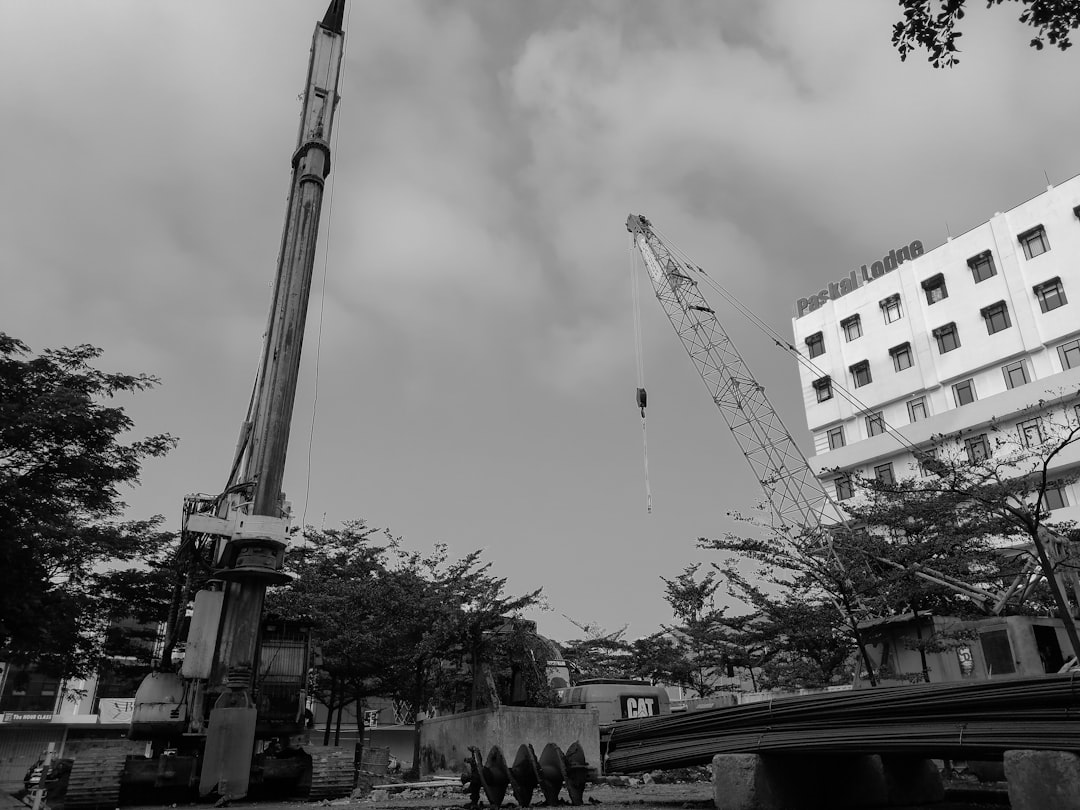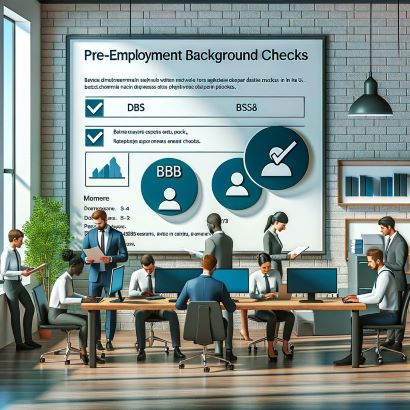

It also reinforces the security of the working environment by ensuring that all employees are legally entitled to work. If you're a non-UK national, make sure you provide proof of residency along with other required documentation. This legal requirement helps employers avoid penalties and fines associated with employing illegal workers.
Be sure to thoroughly verify all documents for accuracy and completeness before submitting your application. The use of digital platforms increases the risk of data breaches if not properly secured.
BPSS checks involve several key components: identity verification, employment history check, criminal record check, and nationality and immigration status check. DBS checks are available in three levels: Basic, Standard, and Enhanced.
Failing to do so can result in not meeting the required eligibility criteria for accessing sensitive information and working in secure environments.
To guarantee your suitability for BPSS clearance, gather the necessary verification documents, including proof of right to work in the UK and identity verification papers such as a passport or driver's license. By ensuring that individuals in sensitive positions are thoroughly vetted, organizations can assure the public that they are taking all necessary steps to safeguard sensitive information and critical infrastructure. BPSS checks are generally conducted as a one-time check prior to employment to establish a baseline of trust and security clearance.
When undertaking BPSS clearance, organizations must verify four main components: identity confirmation, employment history, criminal record, and right to work status. It provides a comprehensive assessment of an individual's suitability for sensitive roles, helping to maintain the integrity and security of crucial operations.
Key components of BPSS clearance encompass verifying the right to work, conducting identity checks, checking criminal records, and confirming employment history. As the industry evolves, here are some key aspects to ponder:1.

Follow our guide to apply for BPSS clearance successfully.
Posted by Jasmine Roberts on 2024-10-08

Keep your BPSS clearance active with proper renewals.
Posted by Jasmine Roberts on 2024-06-24
Posted by Jasmine Roberts on 2024-06-14

Learn how employers can ensure BPSS compliance.
Posted by Jasmine Roberts on 2024-06-08

Avoid these common BPSS clearance application mistakes.
Posted by Jasmine Roberts on 2024-05-29

Discover what employers verify during BPSS checks.
Posted by Jasmine Roberts on 2024-05-10

Learn the essential requirements for BPSS clearance approval.
Posted by Jasmine Roberts on 2024-04-27

Learn the differences between BPSS and CTC clearance.
Posted by Jasmine Roberts on 2024-02-10
Organizations must handle all personal information according to the UK's Data Protection Act 2018, ensuring that applicants' data is processed in a secure, lawful, and fair manner. Additionally, private sector employees who are contracted to work on government projects that require access to sensitive or classified information also need to undergo these checks.

When looking into the cost of a BPSS check, you'll find that it can vary based on the service provider and the specific checks needed. BPSS clearance is essential to prevent corruption and ensure these roles are filled by individuals who are beyond reproach. DBS checks, on the other hand, are regulated by the Home Office and are designed to prevent unsuitable people from working with vulnerable groups.
To initiate the process of conducting a BPSS check, start by gathering all necessary documentation and information for the screening requirements. Baseline Personnel Security Standard (BPSS) clearance is a fundamental security check within the UK, primarily designed to prevent individuals who may pose a threat to national security from gaining access to government and sensitive information.
Lastly, education professionals, particularly those in positions of trust and responsibility such as headteachers or senior administrators, often need BPSS clearance. Individuals applying for National Security Vetting (NSV) must undergo a BPSS check as a prerequisite.
By screening candidates before employment, organizations mitigate risks associated with unauthorized access to sensitive information, corruption, and potential threats to public safety. Under the Immigration, Asylum, and Nationality Act 2006, employers are required to perform right to work checks to confirm an individual's eligibility to work in the UK.


However, BS7858:2019 also outlines specific storage and handling procedures for the sensitive information gathered during the vetting process, reflecting its more rigorous data collection. Ensuring they handle sensitive information responsibly mandates thorough background checking through BPSS. BPSS checks usually involve a basic disclosure, revealing only unspent convictions under the Rehabilitation of Offenders Act 1974.
BPSS clearance ensures that those tasked with this responsibility are verified to be reliable and trustworthy. Hiring policies Procurement officers in government departments handle large-scale purchases and contracts that can have significant financial implications.
It guarantees a secure work environment by verifying essential personal and professional details, affirming trustworthiness, and upholding honesty and integrity. Another key distinction is in ongoing monitoring and renewal requirements.
They work in environments with young and vulnerable individuals and must ensure a safe and secure educational setting. By vetting employees thoroughly before employment, organizations can prevent the exploitation of sensitive positions and protect against security breaches.

BPSS clearance also involves an extensive check of an individual's right to work in the UK, ensuring compliance with the Immigration, Asylum, and Nationality Act 2006. This step must be done in person or, following recent updates, via online checks using the Home Office's online right to work checking service, which provides real-time information about the entitlements of potential employees. Failure to renew your BPSS clearance on time can lead to a lapse in access to sensitive information and government assets.1. Employment verification
Additionally, documentation related to career gaps, redundancy, or periods of unemployment may be requested to ensure a thorough review of the individual's background. Once an individual has been vetted, their information can be continuously checked against updated databases for any changes that might affect their security status, such as new criminal records or changes in financial status, ensuring ongoing compliance with security standards.
Employers often require both checks to thoroughly screen candidates, ensuring safety and trust in their workforce. This process is crucial in safeguarding the nation's security infrastructure and upholding public safety standards.
These policies should outline the steps to be taken if a potential security threat is identified during the BPSS process, including how to manage and mitigate such risks appropriately. This requirement aims to evaluate your movements and assess potential risks associated with overseas stays.
Additionally, when applying for BPSS clearance, it's crucial to have your P45 and P60 forms available as they're key documents that prove your employment history. Individuals undergoing BPSS checks must often comply with the stipulations of this act, as it forms the legal backdrop against which security breaches are adjudged. Employee integrity Some organizations may mandate more frequent renewals based on internal policies.4.
Organizations that implement BPSS clearance as part of their security protocols benefit from a standardized approach to vetting that is recognized across various sectors. Employers must also ensure transparency in the BPSS process.
It's paramount to be transparent and disclose any unspent criminal records when applying for BPSS to uphold integrity. This clearance process confirms key details such as identity, work rights, trustworthiness, honesty, and integrity, ensuring that only qualified and reliable individuals are granted access to sensitive data.
Organizations should be clear about what the BPSS check entails and how the information gathered will be used, ensuring that applicants understand the importance and implications of the clearance process. Organizations that require a Baseline Personnel Security Standard (BPSS) check generally include those involved with national security, government contracts, or any sector where security is paramount.

BPSS vetting includes checking identity details such as name, address, and date of birth, along with employment history, criminal record, and legal right-to-work status.
BPSS Clearance is legally required for certain roles involving access to sensitive government data or secure environments. Employers must comply with UK vetting policies.
Employers verify BPSS eligibility through document checks, identity verification, criminal records, and references. Accurate and complete submissions speed up the process.
Yes, international applicants can apply for BPSS Clearance if they meet the eligibility criteria, including having legal authorization to work in the UK and providing required documentation.